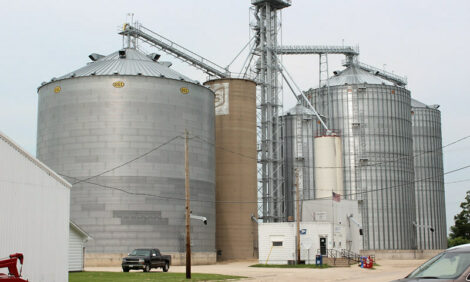



Desperate Farmers Break Sewage Lagoons to Nourish Cattle
NAMIBIA – Cattle in the northern town of Rundu are surviving desperate drought conditions because of vandalism on the walls of a sewage dam.Water is escaping from council sewage lagoons and fertilising grass on adjacent floodplains which is then being eaten by cattle.
Rundu Town Council has posted 24 hour security guards on the dam walls, warning townspeople that further damage will result in punishment, New Era news reports.
Although the situation is sustaining cattle through the dry spell, Rundu Town Council has warned against poisoning cattle, despite having few options.
Rundu Council’s technical services manager John Sinime said: “We are aware that the river is far and the cattle need grazing and water, but we do not want a situation where people lose their livestock because the animals consumed contaminated water.”
Ponds started filling with water after a broken sewage pump was reported to the Rundu Town Council, which has still not been replaced.
A solution, according to Mr Sinime, is expected soon, when sewage will be pumped to a new dam two kilometres away.
This could not come sooner for environmentalists who, in September, predicted leaky excrement pipes would leak into the Kavango river.
He added that the problem will not persist for long as evaporation would soon leave the crops empty.
However, until the risk of sewage water subsides, the harmful effects of waste runoff are being spelled out to farmers.
Livestock and humans are at risk when heavy metals and pathogens accumulate in the soil, warned a Namibian crop scientist from Ongongo University.
“If people eat vegetables that were grown with untreated sewage water they may contract diseases associated with this water,” said Dr Cousins Gwanama.
“This goes for livestock that graze on grass contaminated by sewage water as well, since these animals may contract intestinal worms, which in the process will be transmitted to human beings once they eat the meat of the livestock.”
TheCattleSite News Desk


